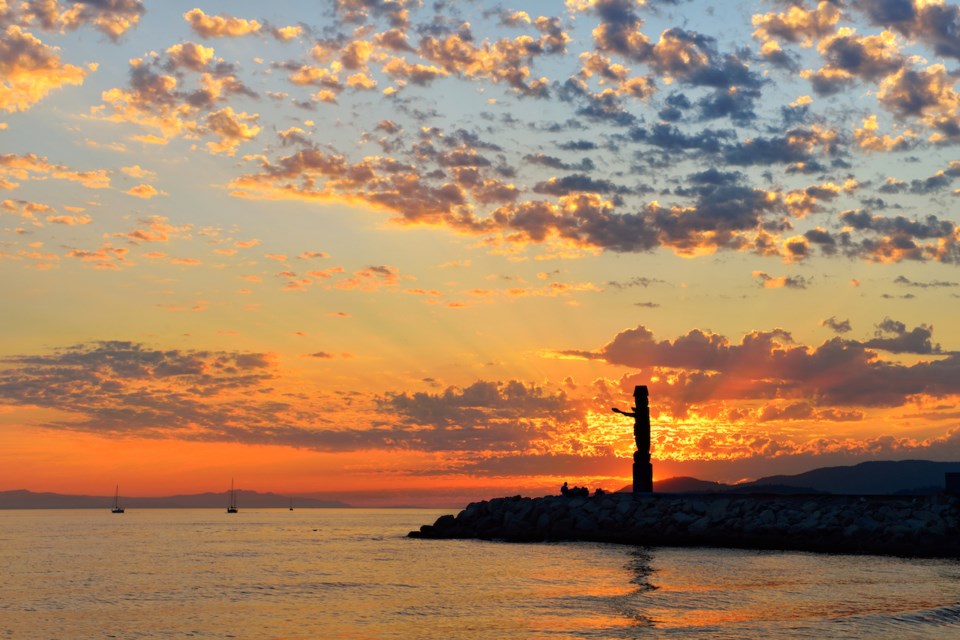How much about the Sḵwx̱wúʔmesh people do you know?
The story of the origins of our people is told and retold.
We begin in Cheḵw’élhp (Gibsons Landing).
Tseḵánchten was living by himself. One day, he had heard a thump on his roof. He went outside.
He saw someone dancing on his roof. The dancer’s whole face was covered by a big mask.
The next to appear was a couple at St’á7mes.
Next, a couple appeared at the mouth of the Ch’iyáḵmesh (Cheakamus River).
The final couple to appear was a the northwest end of our Squamish claimed land.
It was from these couples, that the Squamish people are all descendants.
From these three families, the lands of the Squamish River became fully populated. Some moved away, to make a permanent home somewhere else.
After Tseḵánchten heard a thump, he called out, “You better come down off the roof of my house, my younger brother, come inside.”
The dancer came in and said, “I am the eldest, for I have this mask and it makes me your superior. My name is Sx̱elálten.”
After days of dancing, the brothers decided to build Sx̱elálten a house, a short distance from the shore.
“Now you can dance all you want and we will share the food derived from this little reed. One day, I will make the killing, the next time, you make the killing,” Tseḵánchten said.
Both men were happy.
But soon Sx̱elálten became greedy and did not share his food.
When Tseḵánchten approached Sx̱elálten, his relatives only laughed at him.
Tseḵánchten felt sad about this selfishness. The belief of the people of the time was that they must love, respect and honour each and every one of their relatives and always be prepared to share whatever they had with their family and friends.
This teaching was disregarded by the children of Sx̱elálten.
Tseḵánchten thought the only way to get sea lion meat, was to get rid of his brother and his children.
Tseḵánchten’s only option was to use his powerful inherent ritualistic gift of magic words and temlh (Indian red paint).
He decided to create his own sea lion.
Every night he gathered sea wrack (seaweed), kelp, saltwater grass, mussels and barnacles.
First, he carved a sea lion from a green fir tree. That didn’t work because the wood was too heavy.
Second, he made a sea lion out of red cedar. That didn’t work because the wood was too light.
The last sea lion he made out of a fir tree.
It was perfect to lure his brother and family away from the original hunting grounds.
Tseḵánchten told the entire village — other than Sx̱elálten and family — of his plans and had support for carrying them out.
He brought to life the sea lion and his plan was carried out to a T.
Sx̱elálten and family chased and harpooned the lion.
A couple of the hunters let go and drifted to Kuper Island.
Everyone else held on till they reached Nanoose Bay. When they went to remove their harpoons, they noticed the sea lion was just wood.
Many years later: An old man, a Sxlalten descendant on Vancouver Island, heard that August Jack was in town and he was from Squamish. He invited him over and when he was at his place, August could feel something behind the blanket on the wall.
The old man said, all his family grew up, married down the coastline and he has no family where he was at. His daughter has one mask, but he wanted this original mask to go where it first made its appearance, in Gibsons Landing, to the Squamish People.
The old man asked for the mask to be returned home.
His wishes were fulfilled.
Chelachatanat is a Squamish resident, member of the Squamish Nation, writer, and storyteller.

